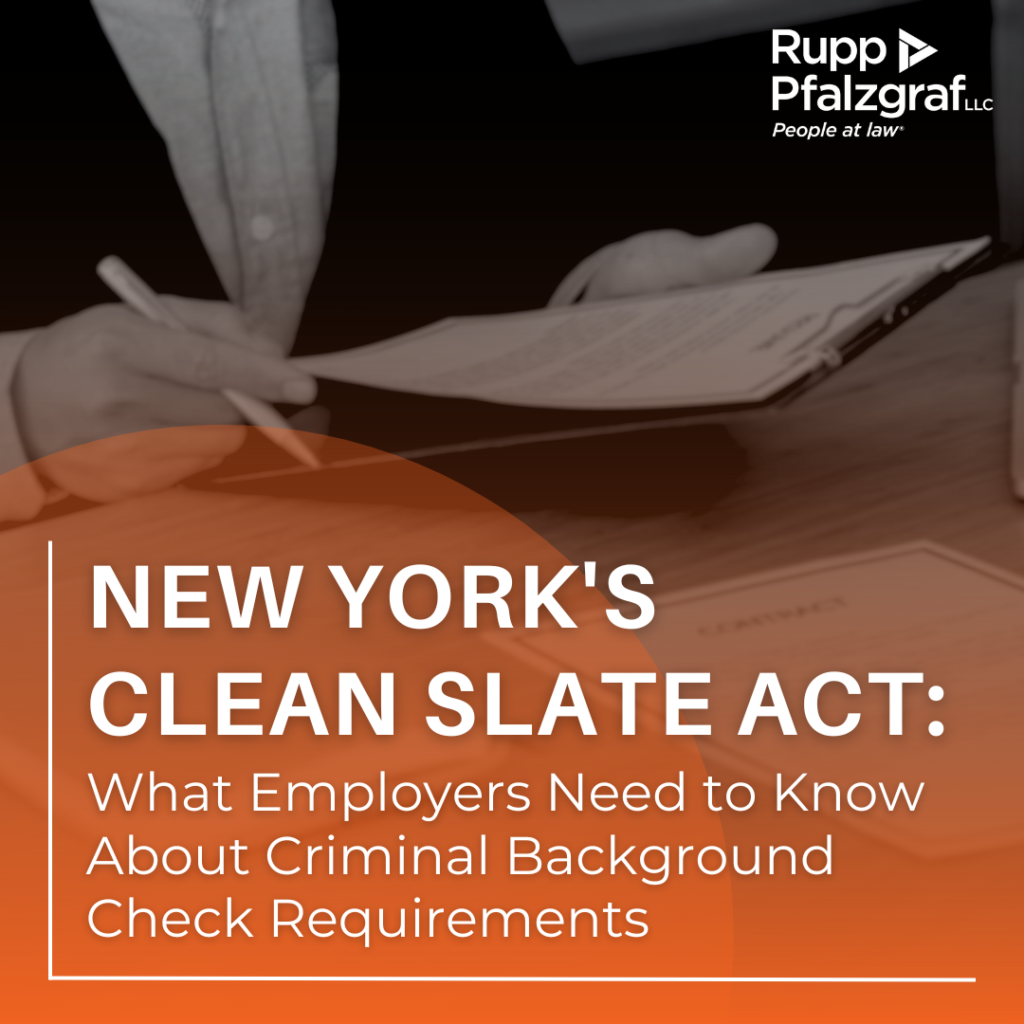
Beginning November 16, 2024, New York employers will face changes in how they handle criminal background checks with the implementation of the Clean Slate Act. This new legislation introduces the automatic sealing of certain criminal records and imposes new obligations on employers regarding background check disclosures.
Key Implementation Timeline
The New York State Unified Court System will have a three-year implementation period, until November 16, 2027, to seal eligible convictions in their records. After this date, eligible convictions will be automatically sealed and shielded from most standard employment background checks.
Scope of Record Sealing
The Act establishes two distinct waiting periods for record sealing:
- Misdemeanors: Three years from either sentencing or release from incarceration; and
- Felonies: Eight years from either sentencing or release from incarceration.
Important Carve-outs Exist for Certain Serious Offenses
Sex offenses, sexually violent crimes, and Class A felonies (excluding drug-related offenses) are specifically excluded from the sealing provisions.
Critical Considerations for Employers
Enhanced Notice Requirements
One of the most significant changes affects how employers must handle criminal history reports. Now, ALL employers must:
- Provide applicants with a copy of their criminal history report;
- Include notification of the right to correct inaccurate information; and
- Furnish a copy of Article 23-A of the New York Correction Law.
Notably, these requirements apply whether or not the employer intends to take adverse action based on the report – a departure from current practice.
Exemptions for Certain Industries
The Act maintains special provisions for employers required by law to conduct fingerprint-based background checks, including:
- Childcare facilities;
- Elder care providers; and
- Organizations serving disabled populations.
These employers retain access to sealed records, but with enhanced responsibilities.
Liability Protections and Risk Management
The Act provides important liability shields for employers:
- Non-exempt employers receive protection against negligent hiring claims involving sealed convictions; and
- However, exempt employers who have access to sealed records face potential liability under New York Civil Rights Law Section 50-G if they mishandle such information.
New Duty of Care Requirements
Exempt employers should note their specific obligations under Section 50-G, which creates liability for:
- Knowingly and willfully disclosing sealed records without consent;
- Causing injury through such disclosure; and
- Where the disclosure substantially contributed to the injury.
Practical Implications for Businesses
This legislation reshapes New York’s employment background check landscape. Employers must:
- Update their background check procedures;
- Revise disclosure forms and processes;
- Train hiring personnel on new requirements; and
- Implement safeguards for handling criminal history information.
Looking Ahead
Employers should begin preparing right away for these changes. The three-year implementation window provides time to develop compliant processes, but the enhanced notice requirements take effect immediately as of November 16, 2024.
The Bottom Line
The Clean Slate Act represents a shift in New York employment law, balancing individual rehabilitation opportunities with employer obligations. Businesses should consult with counsel to ensure their hiring practices align with these new requirements.
Matt Miller, or any member of the Rupp Pfalzgraf Employment Law Team is available to answer questions on this new development and how it relates to your business.

